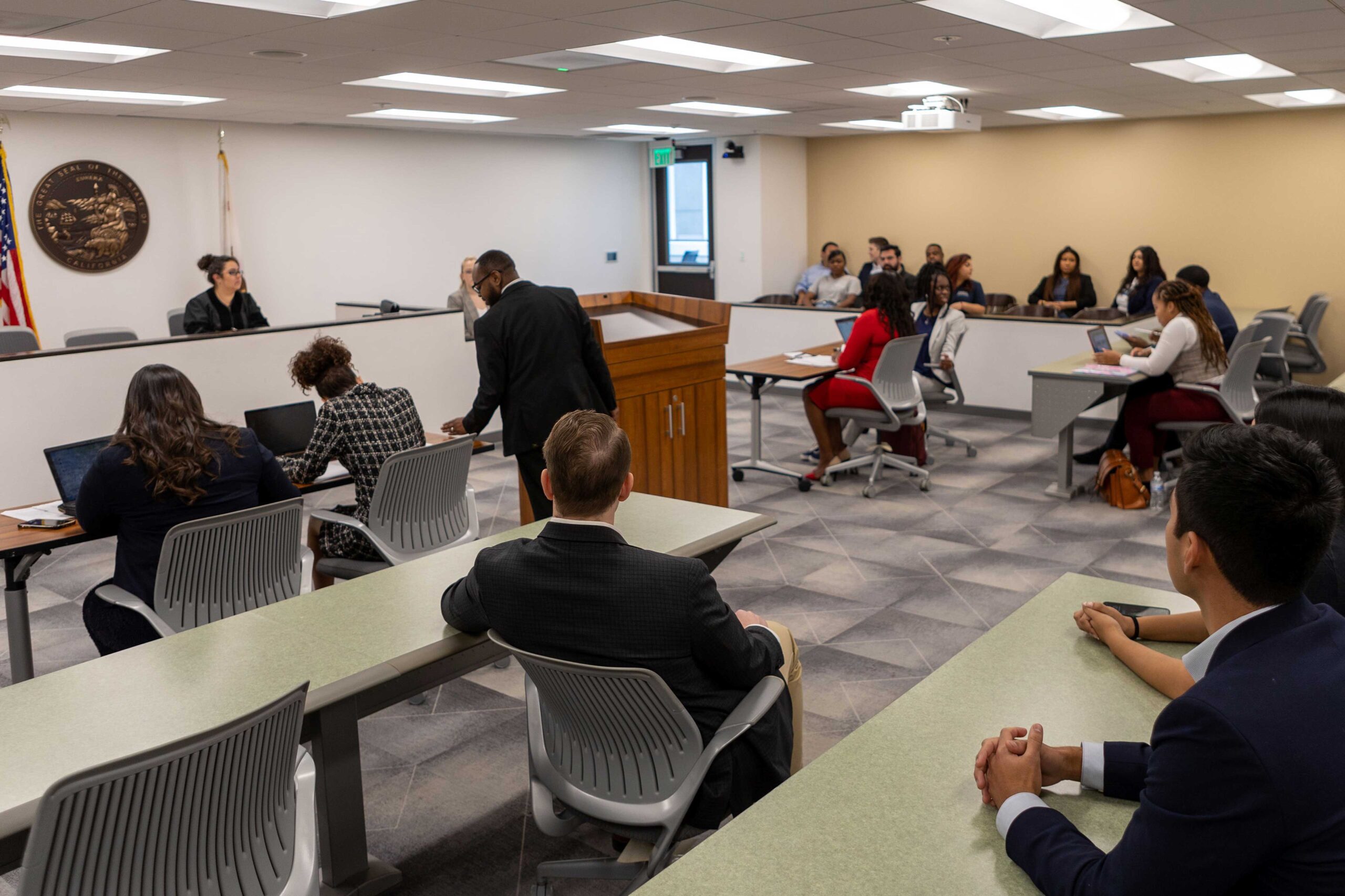
Criminal Law Fellowship Program
Thomas Jefferson Law School is known for our world-class faculty and an unwavering commitment to student success. Each year, we welcome a diverse group of students to learn in our JD and LLM programs in San Diego. First-year students will have classes generally smaller than 50 students and a small section with less than 25 students.
We are committed to giving our students the knowledge, skills, tools, and support they need to be successful from the moment they set foot on our campus, or begin their online law degree, until the moment they walk across the stage to get the diploma they’ve earned—and beyond.
Our curriculum features hands-on opportunities for our students to gain real-world legal experience. Our highly-accessible, expert faculty paired with our location in downtown San Diego provide an unparalleled opportunity for connections and learning opportunities.
Consider TJSL your gateway to a fulfilling legal career.
What Fellows Do
Criminal Law Fellows develop their skills and networks in several different ways.
Criminal Law Externships
All Fellows complete externships with established criminal law practitioners, earning substantial course credits and vital practice experience by working in the field for at least two semesters with a district attorney’s or public defender’s office, or with a private criminal defense attorney. The Fellowship Program works closely with the Externship Director to place every Fellow in an externship that fits their criminal practice aspirations.
Practitioner Presentations
Each semester, local criminal law practitioners come to the law school to interact with the Fellows and explain the work they do. These meetings give Fellows an inside look at numerous different areas and specialties in the criminal law and provide important opportunities to connect and start building relationships with established practitioners.
Special Fellow Courses
Fellows are offered special courses that introduce advanced criminal law topics not covered in the basic required courses. A typical example is Introduction to Criminal Trial Practice, a course introducing students to several important facets of criminal trial litigation. An elective course in Adjudicatory Criminal Procedure is regularly offered and students in the program receive preferred access. Fellows may also have opportunities to take special legal writing and trial practice courses built around issues that arise in criminal trials and practice and work on directed study projects under the supervision of experienced criminal law professors.
Priority Registration
Throughout their time at the Law School, Fellows receive preference in registering for upper-level criminal-law-related classes, ensuring maximum opportunities to build criminal law expertise.
Certificate
In order to complete the Program, students must satisfy certain requirements, including classwork, skills work, and networking. Fellows who successfully complete the requirements of the Program earn a Center Certificate.
These experiences and opportunities ensure that Criminal Law Fellows can step confidently into criminal practice when they graduate, with essential practice skills already in place, and with the support of a growing network of potential mentors, collaborators, and employers.
How to Enroll
Applicants may apply to the Criminal Law Fellowship Program by selecting the option available on the law school general J.D. online application. The Director may admit a student to the Fellowship after the admissions process is complete on a space available basis if the student (1) has time to complete Program certificate requirements, and (2) demonstrates a serious interest in practicing criminal law after graduation.